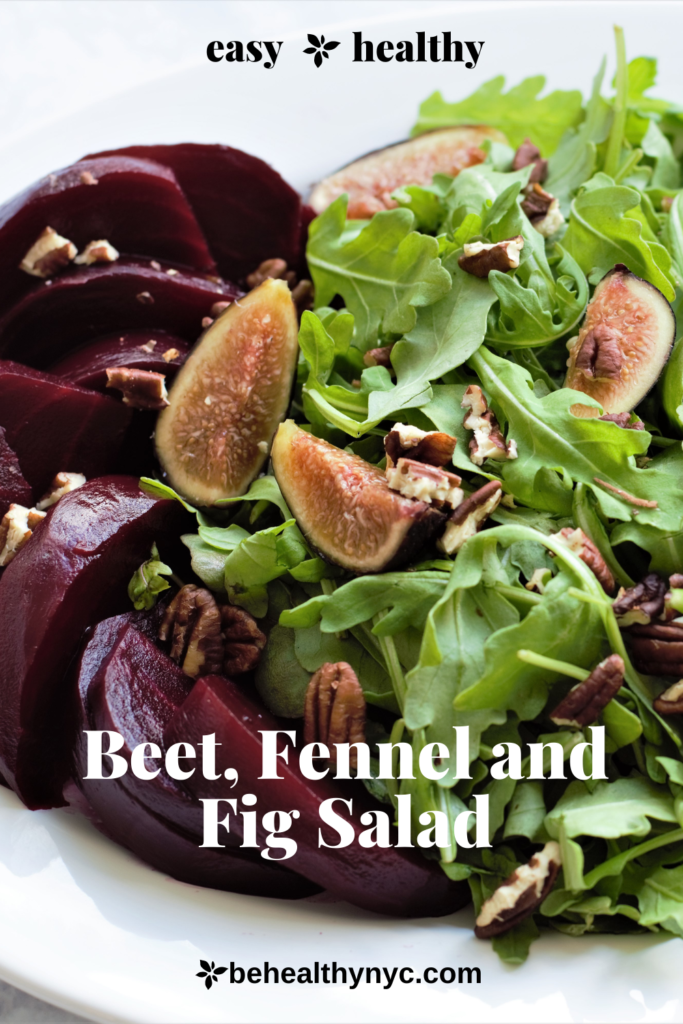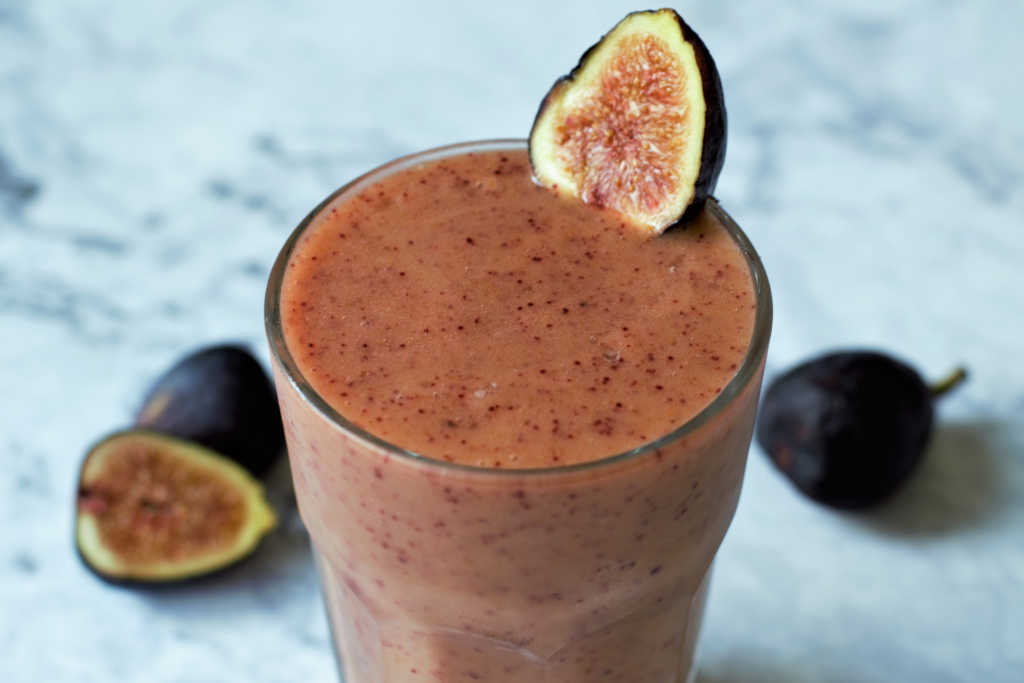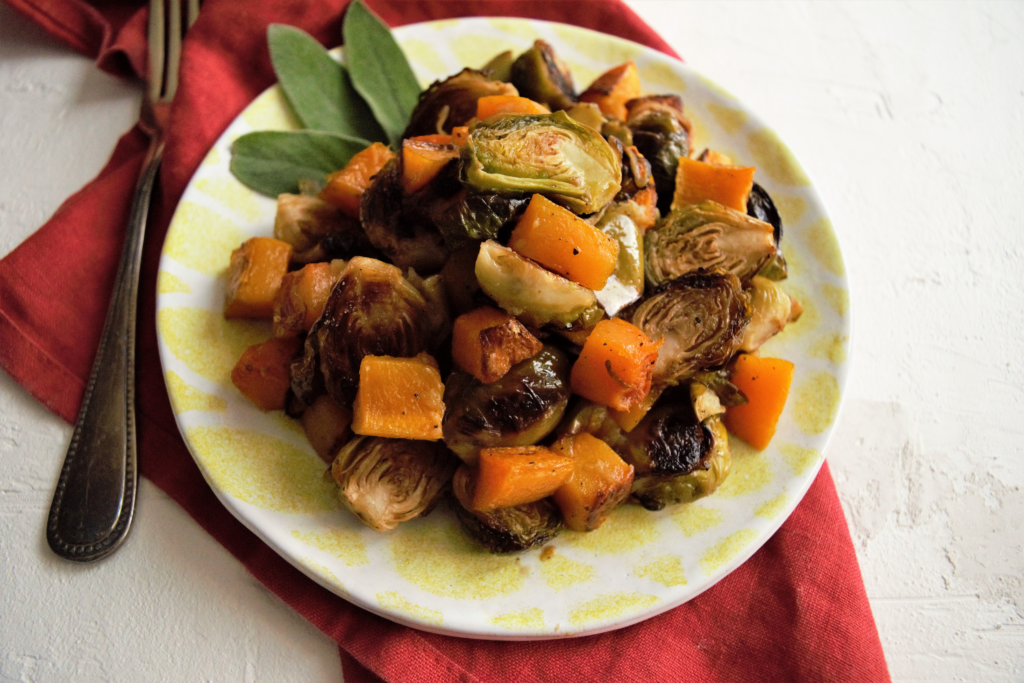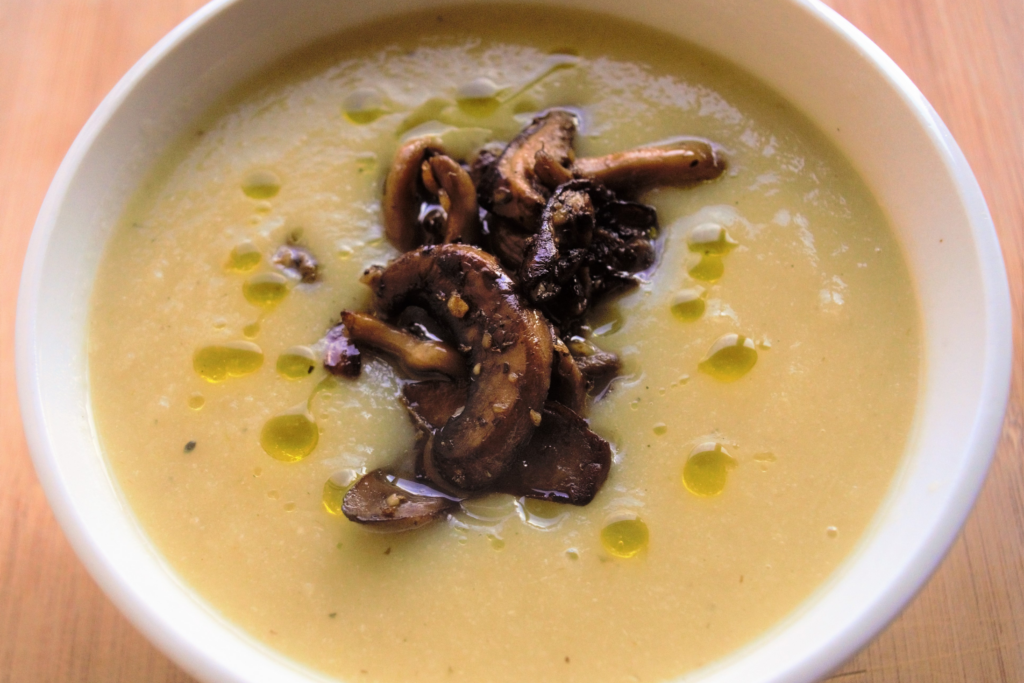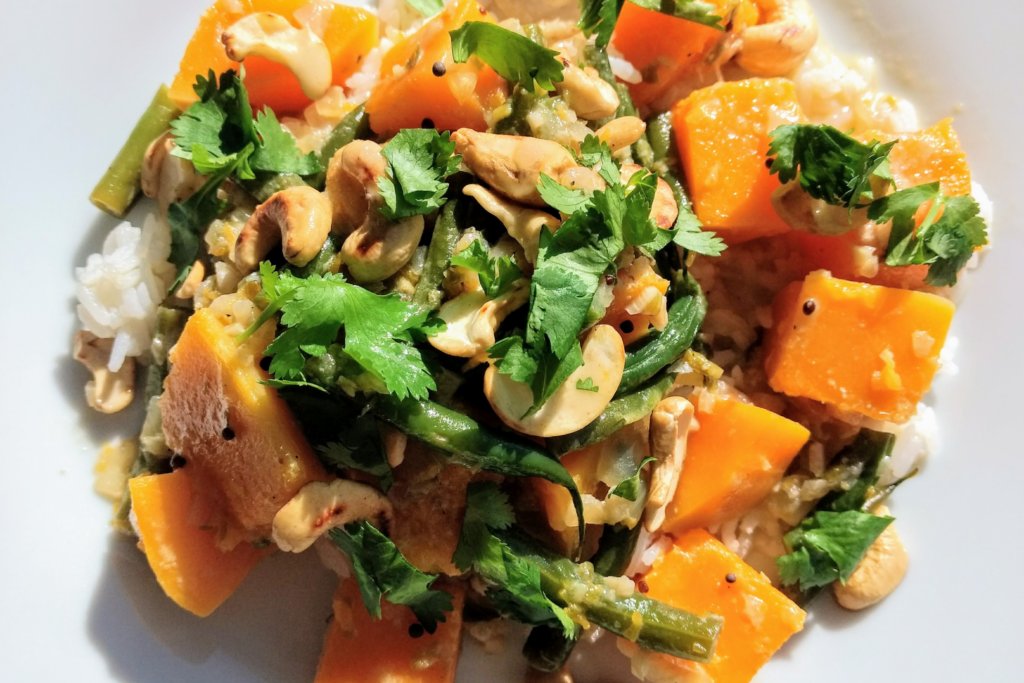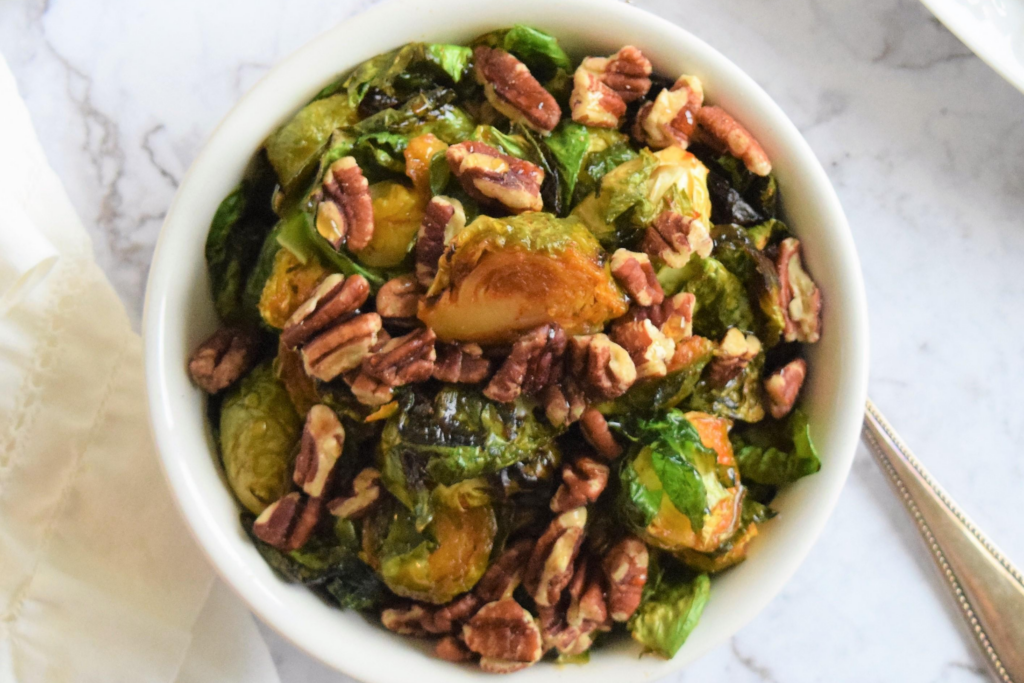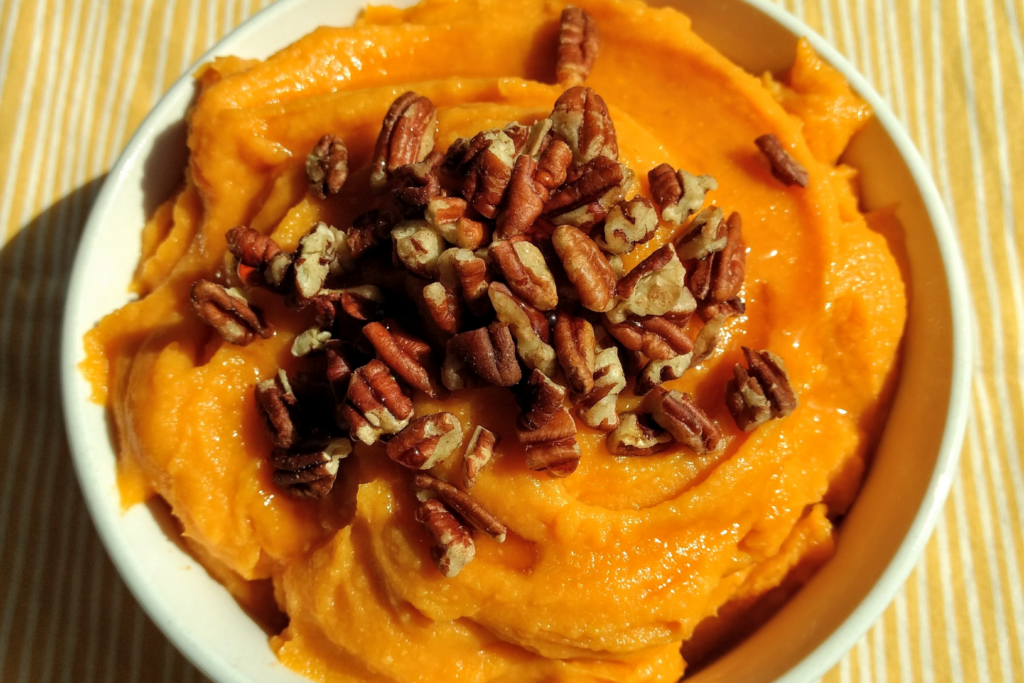Beet, Fennel and Fig Salad With Cranberry-Sage Dressing
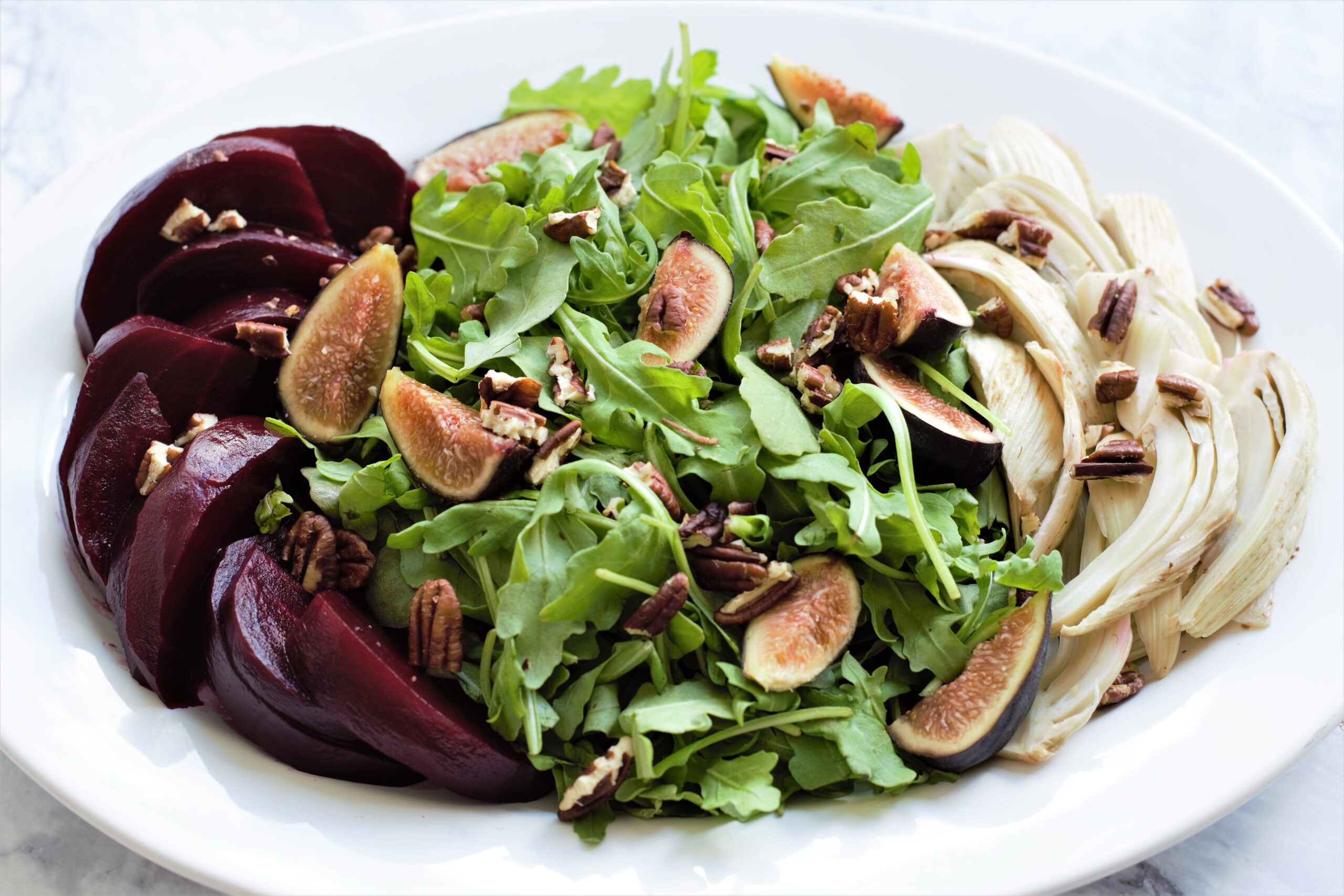
This beet, fennel and fig salad with cranberry-sage dressing is a Fall staple. Delicious, rich, and festive, it is perfect for the holidays. The beautiful colors and the different textures makes it even more appealing. I love how the sweet and tart dressing blends so well with the earthy beets and fragrant fennel.
I was looking for a salad recipe with beets, and found this one at the NYT Cooking site, but it is from my beloved Candle 79 Restaurant, now closed. As always, I followed the recipe exactly, and think it is perfect as it is, however, some readers thought the dressing was too sweet. If you don’t like sweet dressings, use less maple syrup.
rich in flavor and nutrients
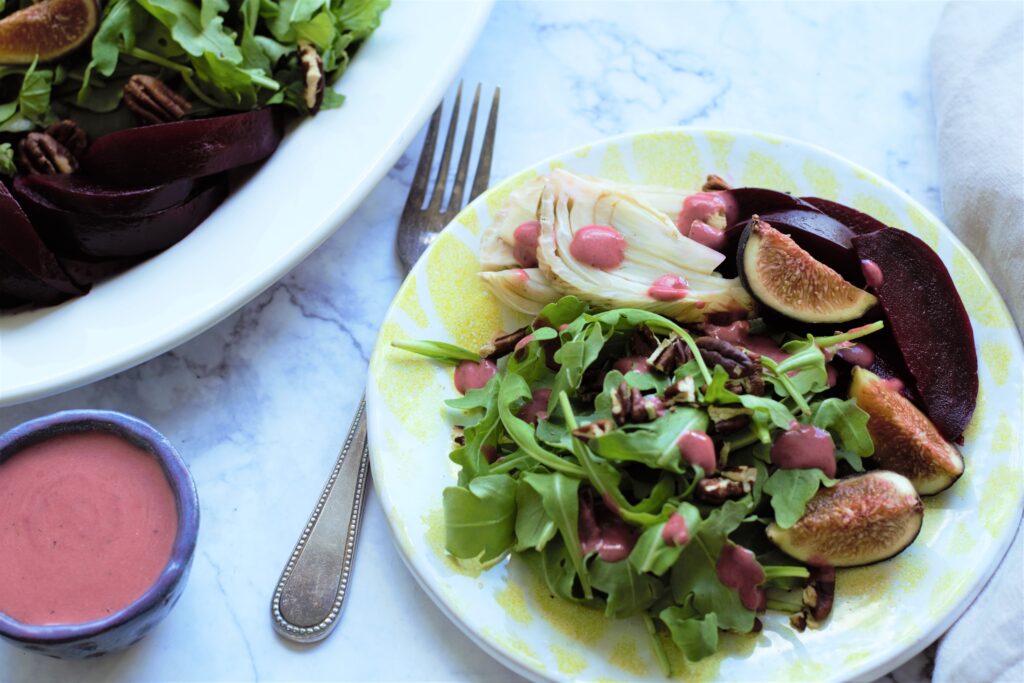
fennel
Fennel is not only tasty but also highly nutritious. The nutrients in fennel are linked to a range of health benefits. Here’s the nutrition for 1 cup (87 grams) of raw fennel bulb:
- Calories: 27
- Fiber: 3 grams
- Vitamin C: 12% of the RDI
- Calcium: 3% of the RDI
- Iron: 4% of the RDI
- Magnesium: 4% of the RDI
- Potassium: 8% of the RDI
- Manganese: 7% of the RDI
Bone health
The vitamin and mineral content in fennel contributes to building and maintaining bone structure and strength in the following ways:
- Phosphate and calcium are both important in bone structure.
- Iron and zinc are crucial for the production and maturation of collagen.
- Bone matrix formation requires the mineral manganese.
- Low intakes of vitamin K have been associated with a higher risk for bone fracture. Vitamin K is important for health, as it modifies bone matrix proteins, improves calcium absorption, and may reduce the excretion of calcium in urine.
Blood pressure
- Maintaining a low sodium intake is essential for lowering blood pressure, but increasing potassium intake may be just as important because of its role in vasodilation, the dilation and contraction of blood vessels.
- In addition, there is evidence that potassium, calcium, and magnesium decrease blood pressure naturally. All of these are present in fennel.
- Dietary nitrates present in fennel and other foods have vasodilatory and vasoprotective properties. Because of this, they help lower blood pressure and protect the heart.
Heart health
- The fiber, potassium, folate, vitamin C, vitamin B-6, and phytonutrient content in fennel, coupled with its lack of cholesterol, all support heart health.
- Fennel contains significant amounts of fiber. Fiber decreases the risk of heart disease as it helps reduce the total amount of cholesterol in the blood.
- Potassium appears to promote heart health. In one study, people who consumed 4,069 mg of potassium per day had a 49 percent lower risk of death from ischemic heart disease compared with those who consumed around 1,793 mg per day.
- Vitamin B-6 and folate prevent the build-up of a compound called homocysteine by converting it into a different compound, methionine. When excessive amounts of homocysteine build up, it can damage blood vessels and lead to heart problems.
Cancer
- Selenium is a mineral in fennel but not most other fruits and vegetables (as it is primarily found in Brazil nuts and animal proteins). It contributes to liver enzyme function and helps detoxify some cancer-causing compounds in the body. Selenium can also prevent inflammation and decrease tumor growth rates.
- Fiber intake from fruits and vegetables like fennel are associated with a lower risk of colorectal cancer.
- Vitamin C, vitamin A, and beta-carotene are powerful antioxidants that can help protect cells against damage from free radicals.
- Fennel contains folate, which plays a role in DNA synthesis and repair. This might help prevent cancer cells from forming because of mutations in the DNA.
Immunity
- The selenium found in fennel appears to stimulate production of killer T-cells. This suggests that it can improve the immune response to infection.
Inflammation
- Choline is a very important and versatile nutrient in fennel that helps with sleep, muscle movement, learning, and memory.
- It also helps to maintain the structure of cellular membranes, aids in the transmission of nerve impulses, assists in the absorption of fat, and reduces chronic inflammation.
- Metabolism – high content of vitamin B-6 which plays a vital role in energy metabolism by breaking down carbohydrates and proteins into glucose and amino acids.
- Digestion and regularity – due to the high fiber content
- Weight management and satiety – Dietary fiber is an important factor in weight management and works as a “bulking agent” in the digestive system. These compounds increase satiety and reduce appetite, making an individual feel fuller for longer and so lowering overall calorie intake.
- Increasing iron absorption – Iron deficiency is one of the most common nutrient deficiencies in the world, affecting around 2 billion people globally. It is also a leading cause of anemia. Pairing high-vitamin-C foods, such as fennel, with iron-rich foods can improve the ability of the body to absorb iron.
Estrogen
- Estrogen occurs naturally in fennel. It plays a central role in regulating the female reproductive cycle, and it can also determine fertility.
- A study on mice conducted by The University of Texas Southwestern Medical Center found that estrogen also plays an important role in controlling factors that contribute to body weight, such as appetite, body fat distribution and energy expenditure.
- Menopausal women have lower estrogen levels which are associated with more abdominal weight gain.
Premenstrual syndrome
- Some research has suggested that fennel extract may reduce the effects of premenstrual syndrome (PMS).
Skin
- Raw fennel is an excellent source of vitamin C. Vitamin C is essential to collagen, the support system of the skin, and also works as an antioxidant to help prevent damage caused by the sun, pollution, and smoke.
- Vitamin C also promotes the ability of collagen to smooth wrinkles and improve the overall texture of the skin.
beets
Beets, or beetroot, has so many uses and benefits it was hard for me not to make this entire post about them. From salads and sugar, to food coloring and hypertension remedy, this delicious root has an impressive resume. And here is some interesting health benefits I found on the Food Revolution website.
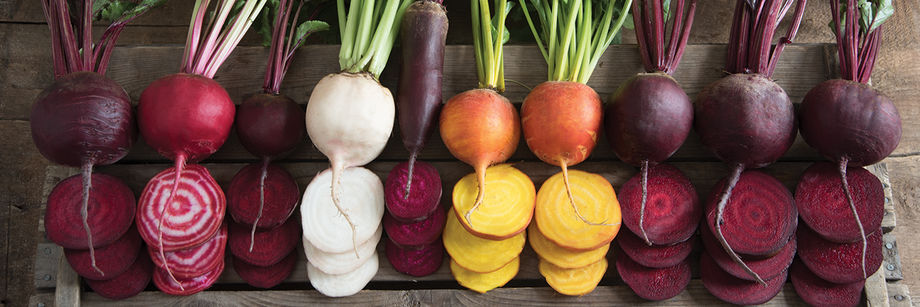
beet’s nutrition facts
According to Healthline, beets mainly consist of water (87%), carbs (8%), and fiber (2–3%). One cup (136 grams) of boiled beetroot contains fewer than 60 calories, while 3/4 cup (100 grams) of raw beets boasts the following nutrients:
- Calories: 43
- Water: 88%
- Protein: 1.6 grams
- Carbs: 9.6 grams
- Sugar: 6.8 grams
- Fiber: 2.8 grams
- Fat: 0.2 grams
why you should eat more beets
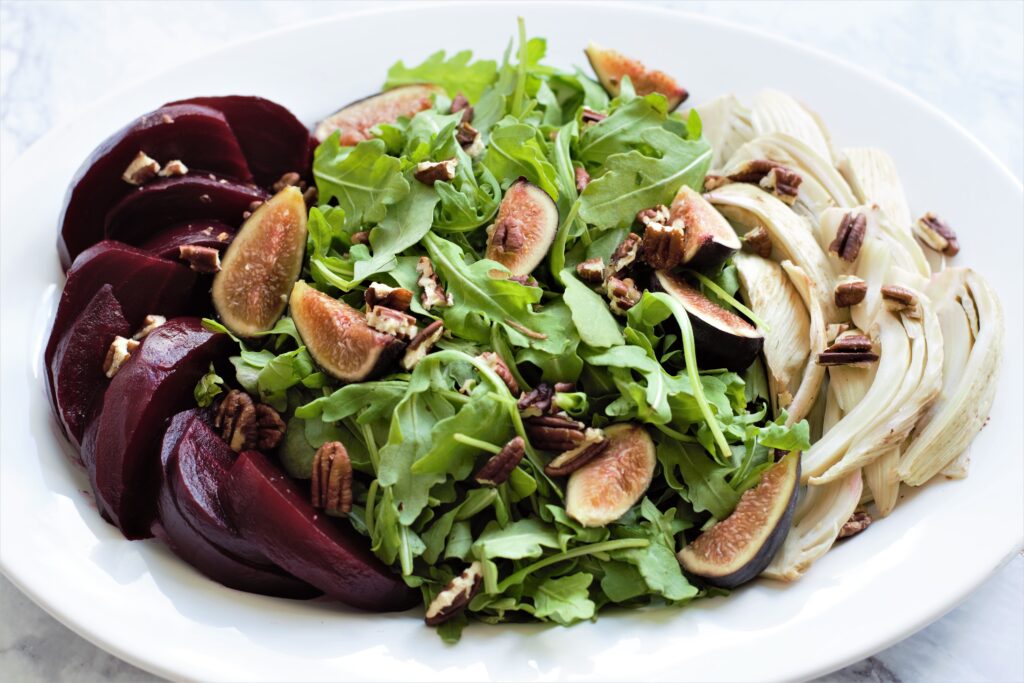
Heart health
Beets, along with spinach, carrots, and cabbage, are a great source of nitrates, which are compounds that convert to nitric oxide in the body. Nitric oxide opens up your blood vessels, which helps lower blood pressure and heart rate.
The nitrates in beets are not the nitrites added to processed foods, like deli meat, which can form cancer-causing nitrosamines. Plants that naturally contain nitrates, like beets, also contain vitamin C and other compounds that prevent them from becoming nitrosamines.
In this study, researchers found that drinking one cup of beetroot juice daily for four weeks was able to reduce blood pressure. Some participants were even able to reduce some types of blood pressure medication as a result. The overall function of blood vessels was also improved.
Better endurance
The nitrates in beets improve blood flow, which helps move oxygen throughout your body.
Endurance athletes often drink beetroot juice to improve performance, which has got to be one of the healthiest and most delicious forms of doping ever invented. Better oxygen flow means that the athlete’s heart and lungs don’t have to work so hard during exercise, allowing them to perform vigorous activity for longer.
Beets can also increase time-to-exhaustion in athletes. In other words, drinking beet juice before exercise seems to prevent fatigue. Beet juice also prevents muscles from exhausting. It’s not clear whether this is because muscle damage lessens or because repair is enhanced, but either way, the results are positive.
Studies suggest that beetroot juice should be consumed within 90 minutes of starting athletics for the best outcomes.
Reduce Inflammation
The betalain in beets can reduce inflammation, which researchers theorize is partially due to its ability to interfere with the inflammatory signaling process.
The anti-inflammatory effects are so promising that some researchers believe beetroot extract supplements could rival the benefits of certain synthetic drugs.
Inflammation is a factor in many health problems, including heart disease, cancer, and obesity.
One study of individuals with knee pain found that a twice-daily dose of concentrated betalain reduced pain and improved joint function in people suffering from osteoarthritis in their knee joints.
Is it possible the improvement was just a case of the placebo effect? Not likely, because another randomized group was given oat bran powder as a placebo, and the group who ate the oat bran powder saw much less improvement.
Digestive Health
Beets are high in fiber, which is good for your gut.
The fiber in beets resists digestion in the stomach and small intestine and travels more or less intact into the colon, where your health-promoting gut bacteria ferment it and use it for food.
The fiber also provides roughage that moves food through your intestines. Eating enough fiber protects against constipation, hemorrhoids, colon cancer, acid reflux, ulcers, diverticulitis, and obesity.
They Are Good for Your Brain
Many cognitive diseases appear to be triggered by an interruption in nitric oxide pathways. It makes sense then that nitrates in beets can help improve brain function by increasing oxygen flow.
A 2017 study published in the Journal of Gerontology demonstrated the ability of beet juice to improve blood flow to the brain during exercise. None of the participants regularly exercised, and all were on blood pressure medication.
They were asked to exercise for 50 minutes, three times per week for six weeks, on a treadmill. Half drank high-nitrate beet juice concentrate before exercise, and half drank an identically flavored and colored placebo drink with almost zero nitrates. Those who consumed the beet juice drink showed improved function in the areas of the brain related to motor control, emotion, and cognition, compared to those in the placebo group.
Cancer-Fighting Properties
Beets are known to have antioxidant properties, which protect cells from free radicals.
Most specifically, the betanin in beets has been studied for its ability to protect against cancer. Some researchers even see the potential for beet extracts for use in chemotherapy.
Of course, we don’t have to wait until cancer strikes to start taking advantage of the cancer-fighting properties of beets. And we don’t need a prescription from an oncologist either!
Boost Immunity
Beets are high in zinc, copper, and vitamins A and C — all nutrients known to boost immunity.
Vitamin A increases antibody production and stimulates your white blood cells, which help ward off infections.
Beets also contain iron, which is needed to carry oxygen throughout your body, keep your cells strong, and enhance immune defense.
Boost Your Libido
The use of beets as an aphrodisiac dates back to the time of the Romans, who attributed the beauty and allure of Aphrodite (goddess of love) to her insatiable appetite for beets.
A European folk belief holds that if a man and woman eat of the same beetroot, they are destined to fall in love. (Kind of an ancient version of sipping a root beer float through two straws. In fact, some old recipes for making authentic root beer include beets among the roots used.)
Beets are rich in the mineral boron, which plays a role in sex hormone production.
The effectiveness of dietary nitrates in beets to enhance blood flow can benefit sexual health as well. And some studies suggest beet juice can be effective in treating erectile dysfunction.
They Are Good for Your Eyes
It’s no surprise that eating fruits and vegetables is good for your eyes — especially those with rich pigments.
Beets contain lutein and zeaxanthin, which are well-studied for their positive impact on vision. Consuming these carotenoids can prevent and slow the progression of age-related macular degeneration, the leading cause of adult vision loss in America.
healthy Liver
Beets have an abundance of nutrients that keep your liver healthy — such as iron, antioxidants, betaine, and vitamin B.
Beetroot helps protect the liver from oxidative damage and inflammation. The betaines in beets help the liver eliminate toxins. And betalains encourage the detoxification process. Also, pectin, a water-soluble fiber in these root vegetables, helps flush out toxins from the liver.
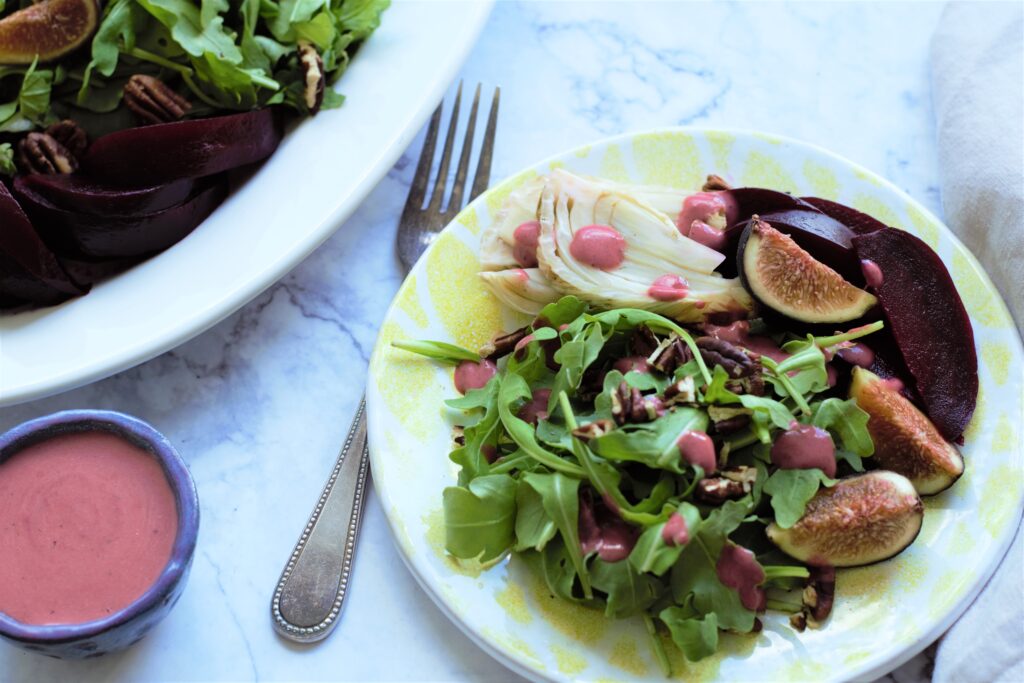
how to make the dressing
Rich and thick, only a little of this dressing goes a long way. Add a tablespoon at a time, this way your salad won’t get soggy.
Enjoy it with hearty salads such as those with winter squashes and Brussels sprouts.
First, add a little oil to a saucepan on medium-heat. Sautee the shallots until translucent for a few minutes. Add the cranberries and cook until soft, for 5 minutes. Allow it cool and transfer to a blender, adding the remaining ingredients and blend until creamy.
The recipe makes about one cup.
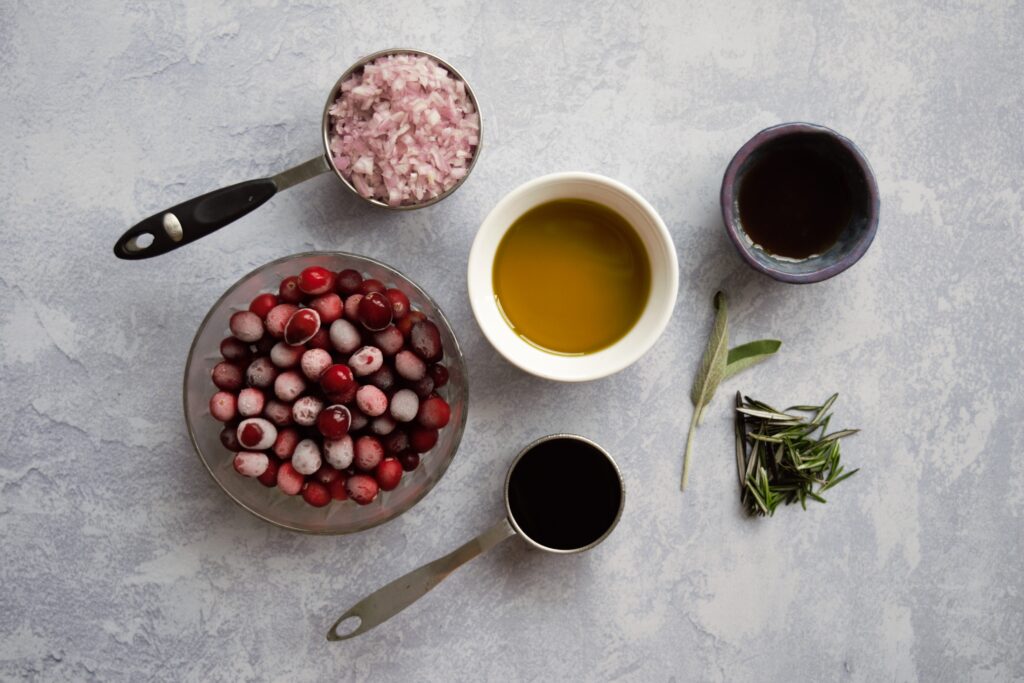
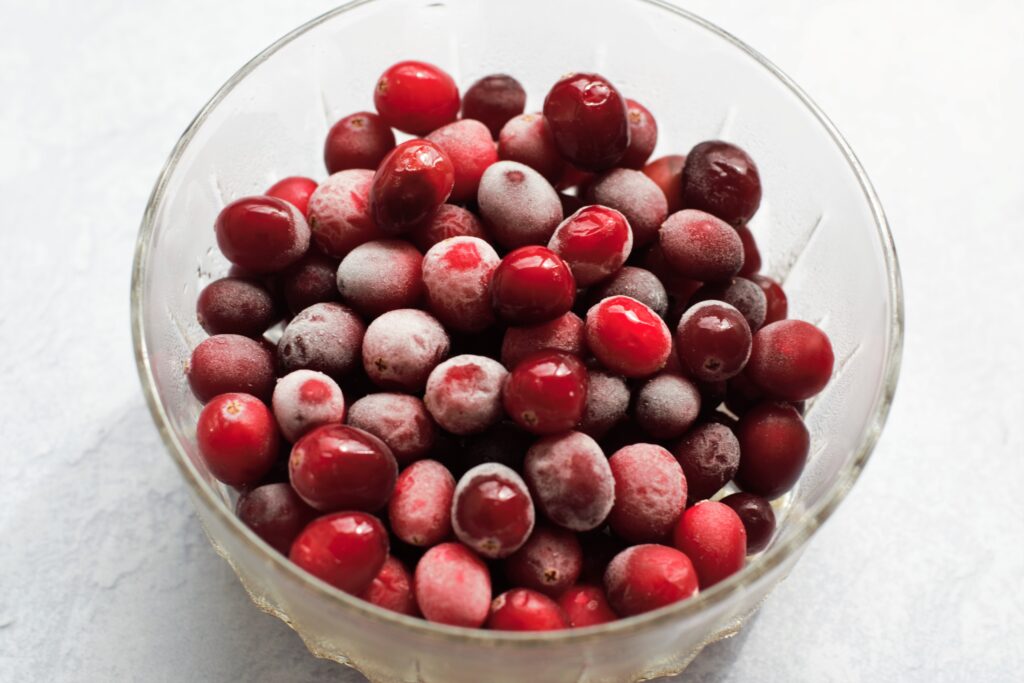
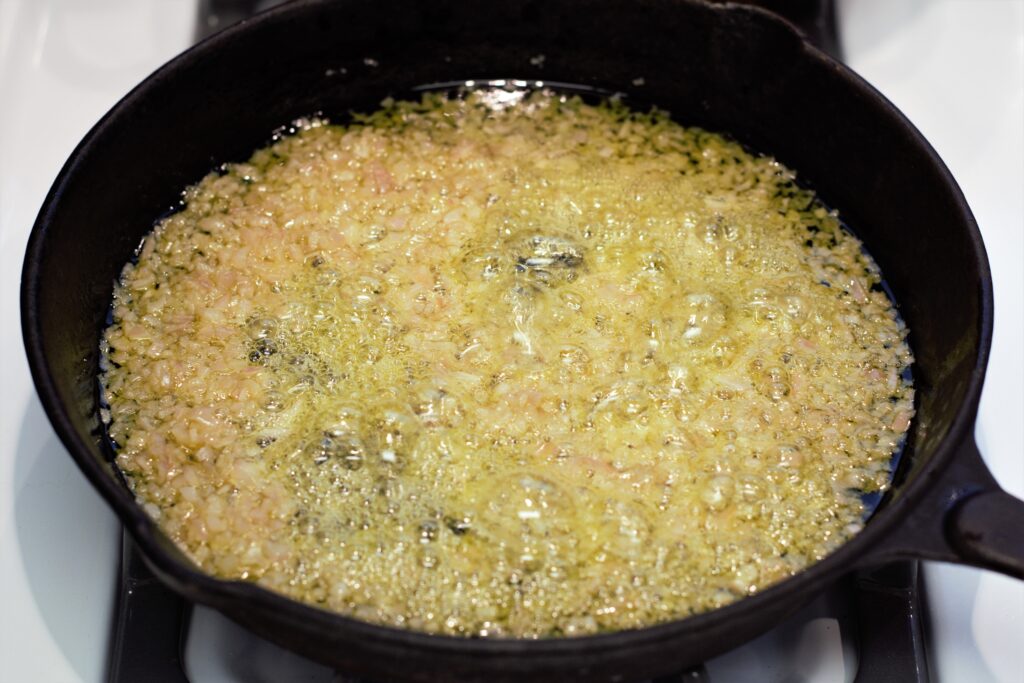
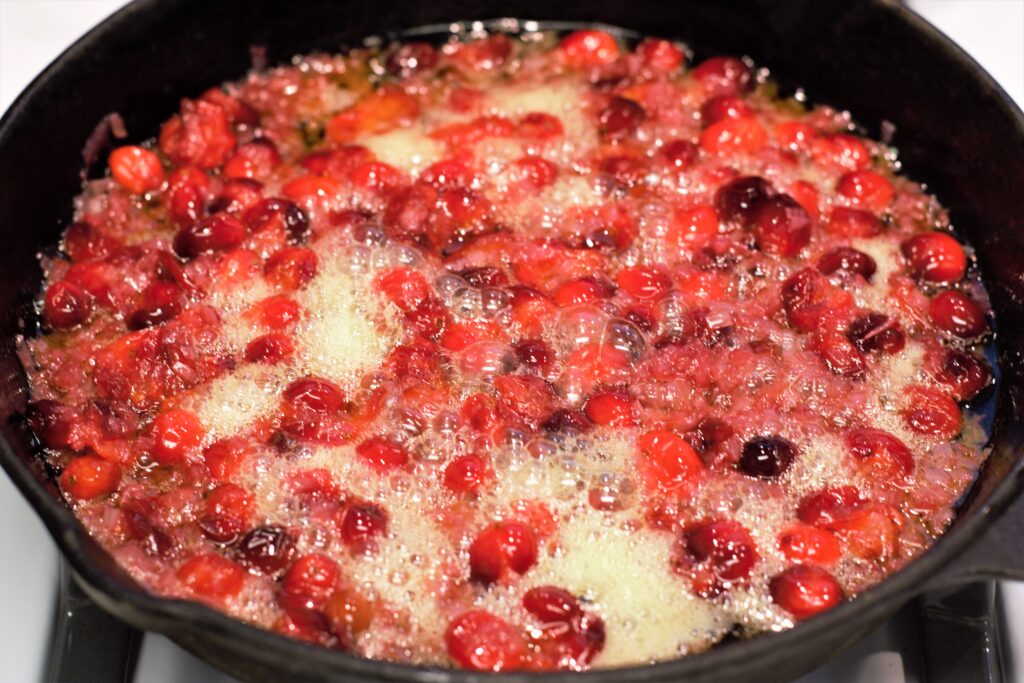
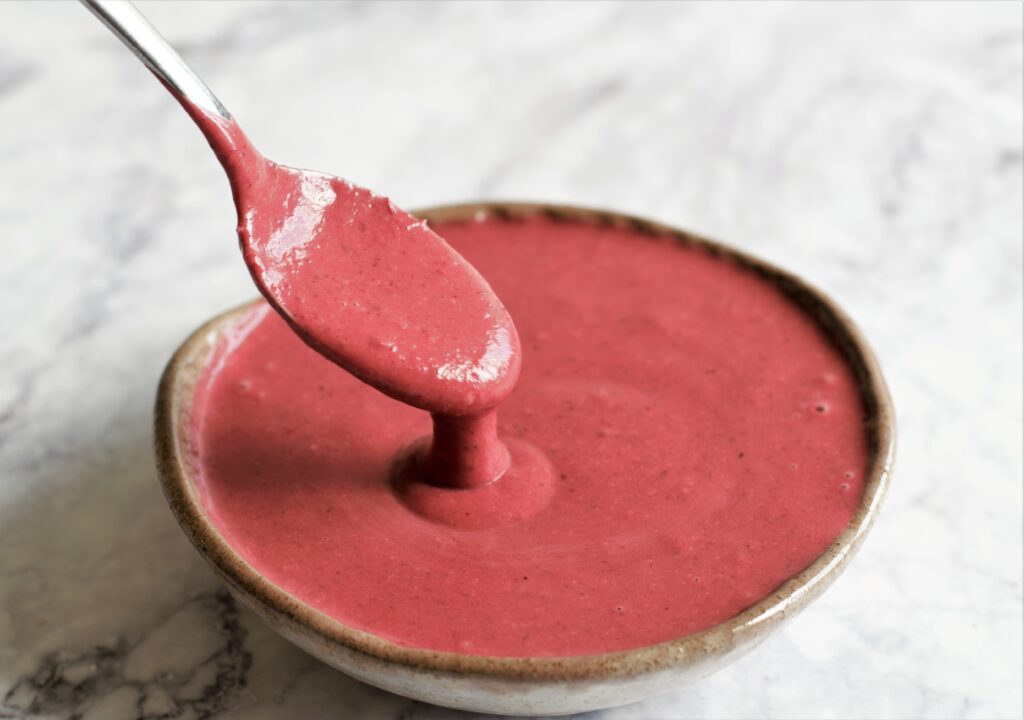
Beet, Fennel and Fig Salad With Cranberry-Sage Dressing
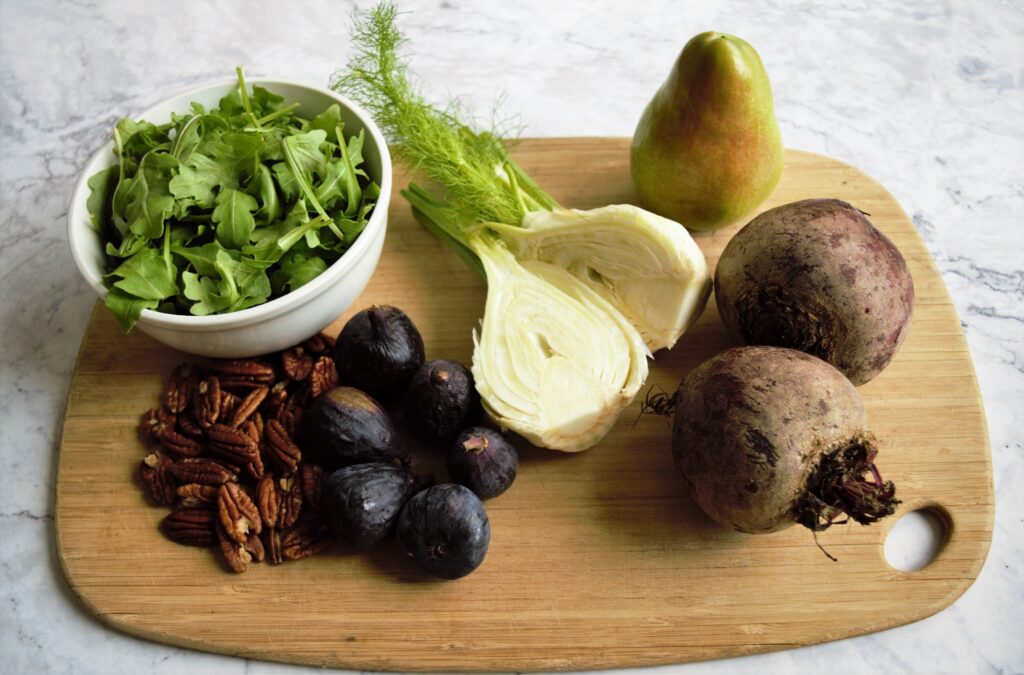
Beet, Fennel and Fig Salad With Cranberry-Sage Dressing
Ingredients
FOR THE CRANBERRY-SAGE DRESSING
- ½ cup extra-virgin olive oil
- ½ cup finely chopped shallots
- 1 cup fresh or frozen cranberries thawed if frozen
- ¼ cup balsamic vinegar
- 1 teaspoon chopped fresh rosemary leaves
- 1 fresh sage leaf chopped
- ⅓ cup water
- 1 tablespoon maple syrup
- ½ teaspoon sea salt
FOR THE SALAD
- 1 pound fresh beets
- 1 fennel bulb trimmed and halved
- Extra-virgin olive oil for drizzling
- Sea salt and freshly ground pepper
- ½ cup pecans
- ½ pound baby arugula
- 1 pear cored and thinly sliced (optional)
- 6 fresh figs cut into wedges
Instructions
-
To make the dressing, heat 2 tablespoons of the olive oil in a large sauté pan over medium heat. Add the shallots and sauté until softened, about 5 minutes. Add the cranberries and cook, stirring, until they are softened and begin to pop, about 5 minutes. Set aside to cool, then transfer to a blender. Add the vinegar, rosemary, sage, water, maple syrup, salt and the remaining 2 tablespoons olive oil and process until smooth.
-
Preheat oven to 350 degrees.
-
Wrap the beets in aluminum foil and put them on a baking sheet. Put the fennel on a separate baking sheet, cut side up, drizzle with olive oil, and season with salt and pepper. Put the beets and fennel in the oven and roast until fork-tender, about 30 minutes for the fennel, and 50 to 60 minutes for the beets. When cool enough to handle, peel the beets and cut into thin slices, and cut the fennel into very thin slices.
-
Meanwhile, spread the pecans on a baking sheet and bake until lightly toasted, about 5 to 8 minutes.
-
Put the arugula in a large bowl, add the beets, fennel, pecans and optional pear, and gently toss together. Drizzle with the dressing and scatter the figs over the salad. Alternatively, divide the arugula evenly among salad plates, placing it to one side of the plate. Drizzle with the dressing and scatter the pecans on top. Arrange the beets, fennel, figs and optional pear alongside the arugula and serve at once.
